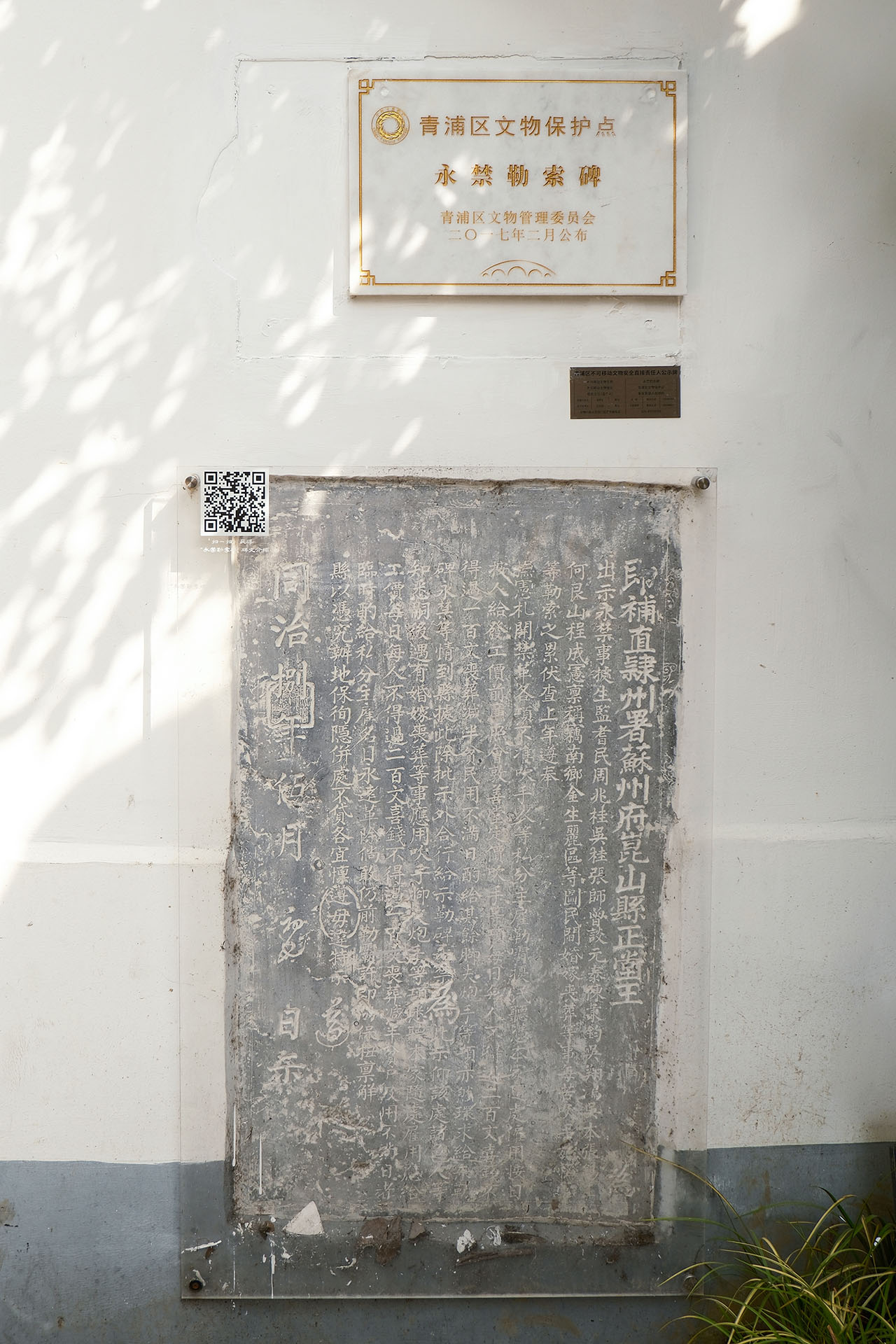Jinle Stele
 On the south wall outside No. 77 Xijing Street in Zhujiajiao Ancient Town is an ancient stone stele, fully titled “Proclamation Stele for Prohibiting Extortion and Setting Standard Labor Fees”. Commonly known as the “Stele of Eternal Prohibition against Extortion”, it is often abbreviated to “Jinle Stele”. The stele was erected on the 7th day of the 5th lunar month in the 8th year of Tongzhi reign (1869). It originally stood at the Earth God Temple of Zhujiajiao but was later relocated to this site.
On the south wall outside No. 77 Xijing Street in Zhujiajiao Ancient Town is an ancient stone stele, fully titled “Proclamation Stele for Prohibiting Extortion and Setting Standard Labor Fees”. Commonly known as the “Stele of Eternal Prohibition against Extortion”, it is often abbreviated to “Jinle Stele”. The stele was erected on the 7th day of the 5th lunar month in the 8th year of Tongzhi reign (1869). It originally stood at the Earth God Temple of Zhujiajiao but was later relocated to this site.
The inscription reflects a local social issue during the Tongzhi Reign: in the southern districts of Kunshan County (Jin, Sheng, Li, Qu and other administrative divisions), porters, musicians, and gunners were found to privately dividing up clients, inflating prices under the pretext of weddings, funerals, and festivals. The county magistrate, Wang Ding’an, built this stele as a warning. He also clearly stipulated labor fees, which served to deter corrupt practices at the time and even today continues to embody a culture of integrity and moral governance.
The stele, made of bluestone, is 170 cm tall and 60 cm wide. It has no stele head or base. The text is written in 11 vertical columns from right to left in regular script (Yan Zhenqing style), with annotations and the character “遵” (“comply”) as directives. The border is decorated with shallow-relief cloud patterns, giving the calligraphy a graceful and orderly appearance. The language of the inscription is firm and reasoned, listing detailed service charges and specific amounts. It directly targeted price gouging and extortion in ceremonial events like weddings and funerals, earning widespread praise and respect from local residents.
Wang Ding’an (1833–1898), courtesy name Dingcheng, was a native of Donghu, Hubei. He passed the provincial-level imperial exam in the first year of Tongzhi Reign (1862). Recommended for his scholarship by Zeng Guofan, he was appointed magistrate of Kunshan County, Jiangsu. After his term, he served as a key advisor to Zeng Guofan for 20 years and later held senior posts including Surveillance Commissioner and Provincial Administration Commissioner in Shanxi. He also oversaw the compilation and publication of The Complete Works of Zeng Guofan.








